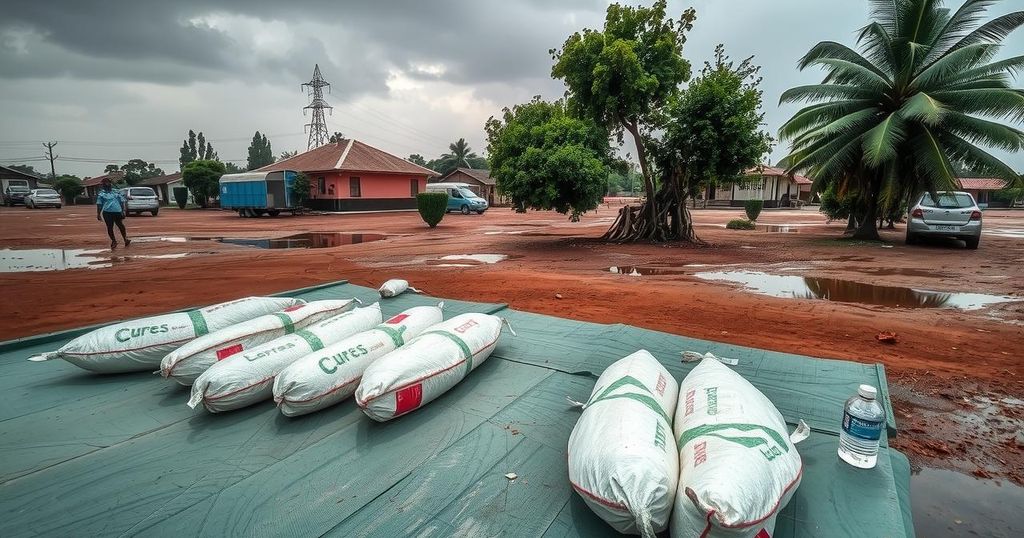Cyclone Chido Devastates Mayotte and Southeastern Africa, Urgent Humanitarian Crisis Mounts

Cyclone Chido has devastated Mayotte and southeastern Africa, leading to a rising death toll, significant infrastructure damage, and urgent humanitarian needs. As rescue operations continue, concerns about famine and disease loom due to power outages and disrupted communications. Local officials call for immediate assistance as communities face further risks with the cyclone season just beginning.
Cyclone Chido has inflicted severe damage on the French territory of Mayotte and parts of southeastern Africa, devastating communities and displacing thousands. In Mayotte alone, search efforts are ongoing amid an alarming death toll that currently stands at 22 confirmed fatalities, with up to tens of thousands presumed dead. The cyclone’s impact has also extended to Mozambique and Malawi, where casualties have been reported. Rescue operations are hindered by significant loss of infrastructure, including power and water supply, leading to concerns of famine and disease in the affected regions.
In Mozambique, authorities have reported at least 45 deaths and hundreds of injuries, while Malawi’s death toll has increased to 13. United Nations officials described the cyclone’s destruction in Cabo Delgado, Mozambique, as unprecedented, claiming that over 35,000 homes and 186,000 classrooms were severely damaged, affecting approximately 90,000 children. Given the compounded crises of infrastructure collapse and humanitarian needs, local leaders are expressing urgent concerns for the population’s safety.
Local journalist Alexis Duclos reported a chaotic situation in Mayotte, emphasizing that basic necessities such as electricity and communication remain disrupted, which hampers search and rescue operations and increases exposure to looting after dark. Mayor Ambdilwahedou Soumaila highlighted the pressing need for food and water, as bodies left in the open are beginning to decompose, posing significant health risks. With climate change driving cyclonic activity, residents of Mayotte are particularly vulnerable as the cyclone season has just commenced.
Darkaoui Hakim, a local employment agency worker, expressed fears of further cyclones, highlighting pre-existing issues such as water shortages and overpopulation on the island: “If there is no long-term solution, unfortunately, what is happening now will be multiplied in the coming years.” In response to the tragedy, President Emmanuel Macron is expected to visit Mayotte, where the government has declared a period of national mourning in honor of storm victims.
The emergence of Cyclone Chido has highlighted the vulnerabilities of regions prone to severe weather phenomena, particularly in the context of climate change. Mayotte, a volcanic archipelago located in the Indian Ocean, is grappling with environmental challenges exacerbated by rapid population growth and unregistered immigration. Recent storms in this region further underline the dire need for robust disaster management and humanitarian response mechanisms, particularly during cyclone seasons. The cyclone has posed not only an immediate threat to life and infrastructure but has also amplified the ongoing humanitarian crisis, with many communities facing significant health risks due to deteriorating sanitary conditions following the storm’s aftermath.
In summary, Cyclone Chido has resulted in catastrophic consequences across Mayotte, Mozambique, and Malawi, leading to significant loss of life, injury, and property damage. The current humanitarian crisis highlights the urgent need for comprehensive disaster preparedness and immediate relief efforts to address famine and disease risks. The challenges posed by climate change continue to threaten affected communities, stressing the importance of coordinated national and international responses to support recovery and resilience in the future.
Original Source: www.thetravel.com




